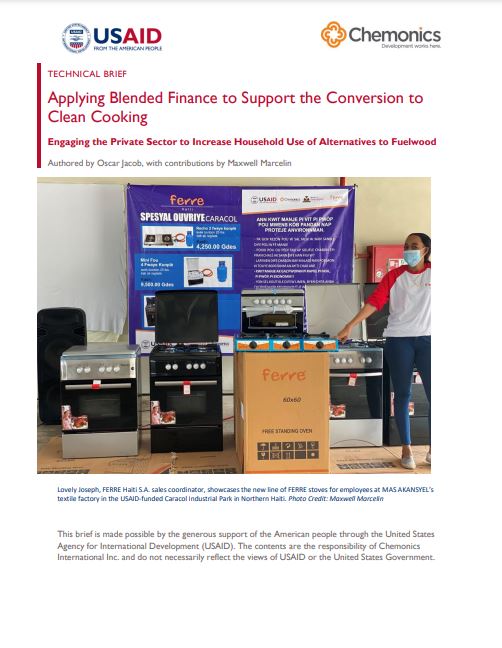In Northern Haiti, deforestation and mangrove loss are putting communities, conservation efforts, and environmental governance at risk.

Applying Blended Finance to Support the Conversion to Clean Cooking .
Technical Brief | April 7, 2021

Through private sector engagement, the USAID Reforestation Project has increased household use of alternatives to fuelwood.
Haiti’s trees and environment are the country’s natural capital. However, increasing population, migration to urban areas, worsening poverty, and lack of coherent national agricultural or energy policy has accelerated deforestation, severely limiting livelihood options for Haitian farmers. Increasingly, farmers depend on producing charcoal to rapidly growing urban areas to make ends meet, but inhaling smoke indoors while cooking with charcoal is a health threat. Cooking with charcoal also takes much more time than cooking with liquefied petroleum gas (LPG), time that could otherwise be spent earning wages or completing other family and household responsibilities. The USAID Reforestation Project has supported the manufacturing of LPG stoves and engaged the private sector in blended financing to decrease deforestation and build resilience to natural and economic shocks and stresses.
